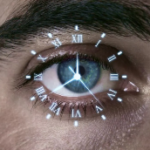Retinal Disorders FAQs
Here are answers to a couple of the most commonly asked questions we get about retinal disorders.
At my recent eye exam, my optometrist said that it looked as though I have some macular changes and I should schedule a visit with an ophthalmologist with specialty training in retina disease. What is macular degeneration and what is the treatment?
Age-related macular degeneration, also known as AMD, is a disease that affects the retina. Macular degeneration affects your central vision. Images that used to be clear may start appearing blurred. The majority of people with macular degeneration find that straight lines become curved or distorted, and colors are darker than they used to be, or less vivid. Unfortunately, there is no cure for AMD.
There are two types of macular degeneration—wet and dry. Treatment for the dry form of AMD, which is the most common, may include specially formulated supplements. Wet AMD can be treated with injections, laser, surgery, and photodynamic therapy.
It is important to learn about the disease and work with a retina specialist who will put a treatment plan in place. They have the training and experience to treat all medical and surgical aspects of AMD.
What are floaters?
Floaters are cobwebs or specks that float in the field of vision.
I have diabetes. What can I do to prevent diabetic retinopathy?
Your risk of diabetic retinopathy can be reduced if you regulate your blood sugar by following your prescribed diet and taking your medications as prescribed. It’s also important to exercise regularly, control your blood pressure and cholesterol, and avoid alcohol and smoking. Annual comprehensive eye exams are a very important part of ensuring your eyes are healthy.
How is a retinal disease and disorders detected?
Detecting retinal disease and disorders involves a comprehensive eye exam that includes a dilated eye exam. Your eye doctor will put drops in your eyes to dilate your pupils then examine the retina with a special magnifying glass. This is performed during an annual comprehensive eye exam.
Is there anything I can do to help prevent Age-Related Macular Degeneration (AMD)?
- Quit smoking. Numerous studies show smoking increases the risk of developing AMD and the speed at which it progresses.
- Exercise regularly. Many studies show getting regular exercise can benefit your eyes.
- Eat healthy and take specially formulated vitamins.
- Wear sunglasses with UV protection.
- Get an annual comprehensive exam.
NEXT STEPS
If you’re experiencing blurred vision, floaters, flashes of light, or have been diagnosed with diabetes, it is important to call us immediately to schedule an appointment. Receiving prompt treatment can be critical to your sight.

